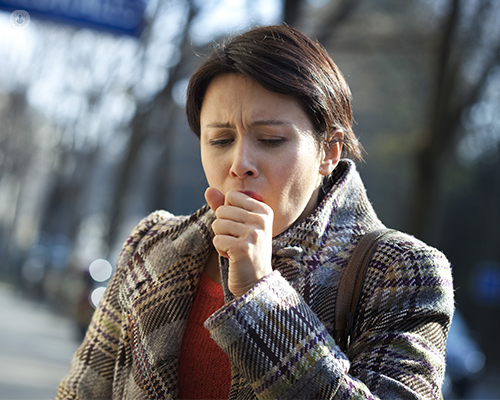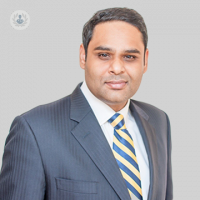Taking precautions against the coronavirus (COVID-19)
Written in association with:COVID-19 is clearly a worrying virus and there is a great deal of information available on its current course and how it is affecting people. Dr Amit Patel, a leading consultant respiratory physician in London, provides you with what medical professionals currently know as of 04/03/20 and points you to the important sources of further information.

In most people, the effects on the body are mild
The vast majority of patients with COVID-19 from what we currently understand have mild symptoms similar to the common cold or flu. This is our understanding on the basis of the currently available data. More serious cases around the world have required treatment in hospital.
How it spreads
Much like other respiratory viruses, COVID-19 has been shown to spread via secretions.
- Having a runny nose: this often results in people wiping their nose before touching and consequently contaminating surfaces. If another person then touches the same surface while the virus is active, they could unknowingly contract the virus.
- Sneezing and coughing: droplets travel through the air laden with virus particles.
By minimising how much you touch your eyes and mouth and washing your hands frequently, you can minimise the risk of spreading a virus. This is one of the most important things we can do to limit spread. The infectivity of this virus is very high. It is also important to cover your mouth when sneezing using a tissue or coughing into your elbow sleeve. Simple measures are effective at reducing the spread of diseases.
Why people are being isolated or asked to self-isolate
The position is changing frequently as the situation evolves. Patients admitted to hospital may have been isolated for observation and to try to contain the spread. We do not know the severity of the illness they have suffered. At present we remain in a containment phase but this may change as more patients are found to have contracted the infection.
Individuals who may have come into contact with the virus do not have symptoms immediately. They have been asked to self-isolate to reduce the chance of spread.
Unreported cases
It’s very likely that there have been unreported cases around the world. If this is the case, it could be because symptoms have been so mild that patients have not had diagnostic tests. Patients around the world with more severe symptoms are more likely to be known about because they’ve required medical investigation and management for their symptoms.
The virus and age
It appears so far that the virus has less of an impact on children. The bigger impact has been in those who are older. Of identified cases, data shows that the risk of significant illness increases with age and in those with underlying medical conditions such as heart disease, diabetes and high blood pressure. Those with underlying weakened immune systems because of illness or medications are also at greater risk of more severe disease.
Advice for the general public
The most important action is to always follow the advice of Public Health England and Government. Responses have been swift and information is regularly updated. Actions we should all take:
- Regular hand washing – doing this long enough to sing happy birthday twice has been recommended!
- Using “cough etiquette”: coughing into a tissue and discarding it or coughing into your elbow sleeve.
- Carrying tissues!
- Avoid touching your eyes, nose and mouth with unwashed hands
- Staying home if believed to have come into contact with someone who is infected and contact NHS 111
- Avoid travel to high-risk areas.
- Err on the side of caution if you have any concerns and contact NHS 111 for advice.
If you believe you may have COVID-19
You should contact the NHS 111 line immediately or use the online NHS coronavirus service immediately. You will go through a protocolised system, which may change depending on how things evolve.
PATIENTS SHOULD NOT BE ARRANGING APPOINTMENTS WITH PRIVATE PHYSICIANS OR AT PRIVATE HOSPITALS. THEY SHOULD REGARDLESS OF WHERE THEY HAVE TRAVELLED FROM USE THE NHS 111 HELPLINE.
Reliable and frequently updated information sources
It’s important to note that the information in this article is recent up to the 4th of March 2020. The situation is ever-evolving and the NHS coronavirus information page is one of various official and reliable sources for further up-to-date information.
If you have questions about upcoming travel, the World Health Organisation (WHO) offers official and reliable updated travel advice and guidance on the current outbreak of COVID-19 and which countries are affected. Likewise, the NHS offers advice for travellers as well as general information and the UK Government ’s own website also offers the latest information and is an essential source of information.
Dr Amit Patel is the clinical lead for respiratory medicine at King’s College Hospital in London. Visit his profile to learn more.
If you are currently in self-isolation or practising social distancing and need to speak to a medical specialist, you can speak to a doctor using our remote e-Consultation service. Find out more here.


